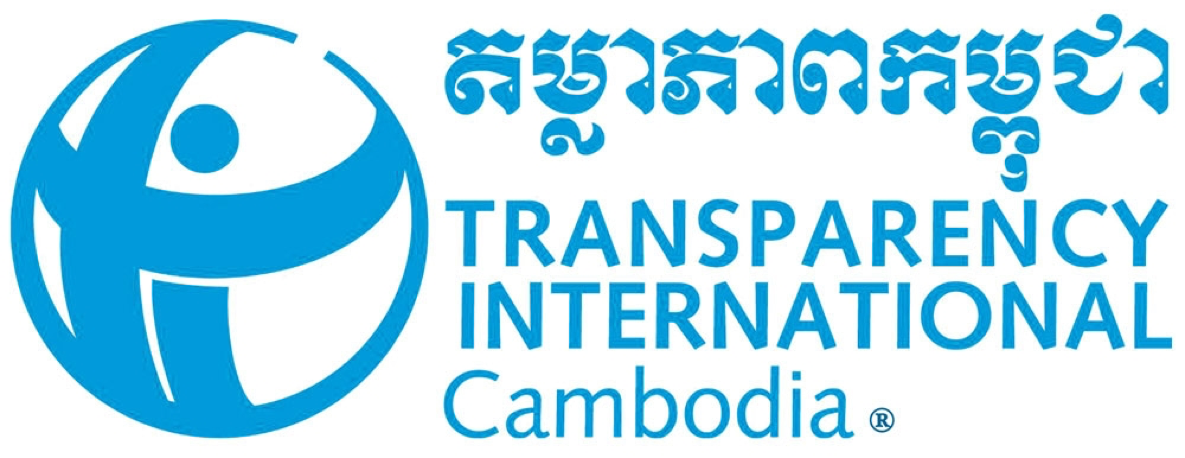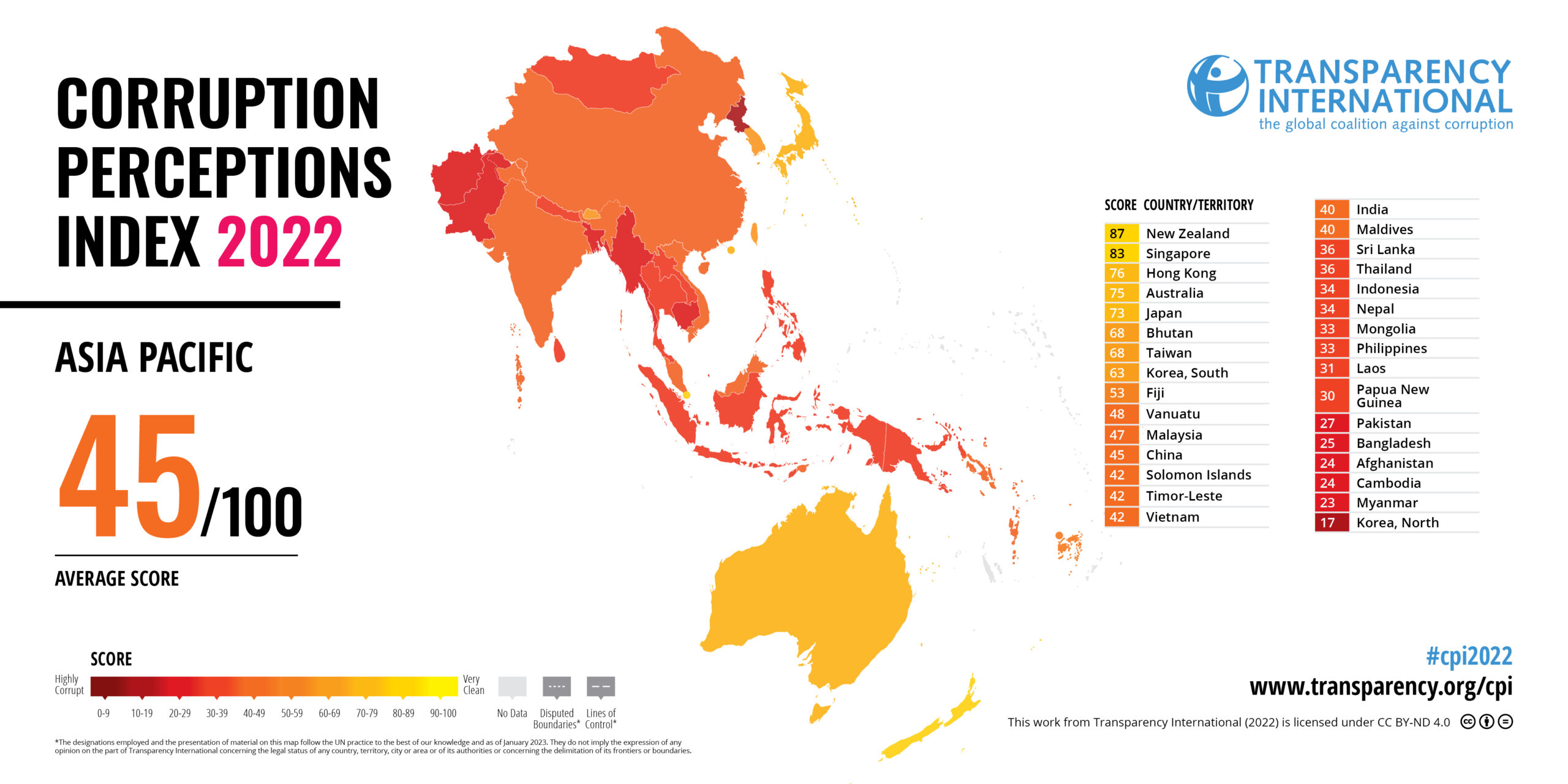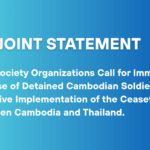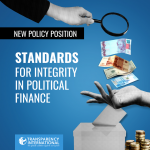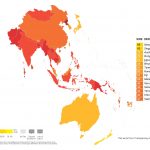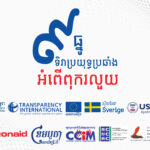CPI 2022 Press Release Cambodia
Phnom Penh, 31 January 2023 – The 2022 Corruption Perceptions Index (CPI) published by Transparency International (TI) today gave Cambodia a score of 24 out of 100, placing it 150th out of the 180 countries included in the index. The score and ranking represent a slight improvement compared to the previous year’s result. In the 2021 CPI, the country received a score of 23 out of 100 and was ranked 157th globally. In general, Cambodia’s CPI scores have steadily increased over the past five years, from 20 in 2018 to 24 in 2022. Although this may be seen as a good development, the score is still significantly low, suggesting that there is a lot more work that is needed in order to combat corruption in the country.
This year CPI’s result indicates that Cambodia continues to trail far behind other nations in Asia and the rest of the globe. From a regional standpoint, Cambodia holds the second-lowest spot in the ASEAN region and the third-lowest position in the Asia Pacific, coming above only Myanmar (157th) and North Korea (171st). Results for other ASEAN nations have been mixed, with a number of countries seeing a drop in their scores. The sharpest fall was recorded by Myanmar, which experienced a slip of five points compared to last year’s result (down from 28 to 23). This means Myanmar is now perceived as the most corrupt country in Southeast Asia. Although its score declined by two points in comparison to 2020’s result (85 to 83), Singapore continues to rank among the top five cleanest countries worldwide. Other nations whose scores have decreased are Indonesia (down from 38 to 34) and Malaysia (48 to 47). Countries in the region that registered an improvement are Vietnam (39 to 42), Thailand (35 to 36) and Lao PDR (30 to 31). Only the Philippines’s score remains unchanged (33).
A TI Cambodia’s deeper analysis of the eight principal sources that were used to calculate Cambodia’s CPI score shows that this year’s marginal gain reflects the country’s continuous efforts to revitalise and promote the post Covid-19 economic development, improve business environment, enhance public services, and strengthen public financial management, especially fiscal transparency and resource mobilisation. However, what continuously prevents the country from receiving a substantially higher score and, consequently, ranking, have been a perceived lack — if not an absence — of efforts to advance good governance, democracy, and the rule of law.
“We commend the Cambodian government for the many achievements it has made in recent years, which have resulted in a steady decline in small-scale corruption. Perhaps most notably among these have been the Public Financial Management Reform (PFMR) programme and the One Window Service initiative, which have contributed significantly to the improvement in revenue mobilisation, fiscal management and public service delivery in the country,” said Transparency International Cambodia’s Executive Director Pech Pisey at the launch of the Cambodia’s CPI 2022. “However, we also believe public financial management reform must go hand in hand with democratic and rule of law reforms. Without the latter reforms, public financial management reform would be ineffective and unsustainable as it would lack the necessary oversight and accountability to ensure that public funds are being used responsibly and transparently. In addition, only with a strong political will and commitment to reforming the rule of law can grand corruption — which remains prevalent and the most consequential in Cambodia — be reduced,” he added.
Globally, the Corruption Perceptions Index (CPI) reveals that most countries have made little to no progress in tackling corruption in more than a decade and more than two-thirds of countries scored below 50 out of 100. Despite the opportunity presented by the numerous diplomatic summits held in the region in 2022, states across Asia continue to focus on economic development at the expense of other priorities, including anti-corruption efforts. The Middle East and North Africa region has hit a new low — average of 38 — as decades of authoritarianism, ultimately unbroken by the Arab Spring uprisings, have led to pervasive civil unrest – and violent conflict – as people fight for their rights and voices to be heard. In the Sub-Saharan Africa region, forty-four of the 49 countries assessed still score below 50. Gains made by a few countries are outweighed by significant declines in others. Western Europe and EU is once again the top-scoring region in the CPI. However, progress has stagnated in more than half of countries for more than a decade. The Americas scores an average of 43 out of 100 for the fourth consecutive year. A lack of bold, decisive action to fight corruption and strengthen public institutions is fuelling organised criminal activities, undermining democracy and human rights, threatening the achievement of the Sustainable Development Goals (SDGs), and sparking violence, environmental damage and migration across the hemisphere.
It is worth highlighting that since 2008, global peace has deteriorated and corruption has been both a key cause and result of this. Corruption undermines trust in governments and their ability to protect the public, leading to increased security threats that are harder to control. On the other hand, conflict creates opportunities for corruption and makes governments less able to address it.
Delia Ferreira Rubio, Chair of Transparency International said, “Leaders can fight corruption and promote peace all at once. Governments must open up space to include the public in decision-making – from activists and business owners to marginalised communities and young people. In democratic societies, the people can raise their voices to help root out corruption and demand a safer world for us all.”
TI Cambodia once more urges the government to accelerate its reform initiatives in order to eliminate corruption by:
- Sanctioning corrupt behaviors and offenses, both grand and small-scale, and ensure that corruption is a high risk and a low gain venture through an effective enforcement of the anti-corruption legislations.
- Upholding the rights needed to hold power to account. The government should end restrictions on freedoms of expression, association and assembly and ensure justice for crimes against human rights defenders must also be an urgent priority.
- Restoring and strengthening institutional checks on power. Public oversight bodies such as anti-corruption agencies and audit institutions need to be independent, well-resourced and empowered to detect and sanction wrongdoings. Parliaments and the courts must be independent and also be able to prevent executive overreach. In order to have an effective oversight, it is vital that Cambodia ensures the highest integrity in election and a conducive environment for all citizens, political activists, journalists and businesses to fully exercise their civic and political rights enshrined in the Cambodia’s constitution.
- Amending/adopting anti-corruption legislations/provisions and ensure that it meets international standards and practices. It includes the amendments of a number of articles in the Anti-Corruption Law, especially those concerning asset declaration and malicious or false reports and adopting the draft laws on the protection of reporting persons, witnesses, experts and victims and the draft of code of conduct for public officials.
- Adopting the Access to Information law that meets the international standard and promote the right to information so the public knows where public spending is going and how resources are distributed, leaving this open to scrutiny from journalists and civil society. In cases of sensitive information, there must be rigorous and clear guidelines for withholding it, including in the defence sector.
- Promoting fair competition and better level playing field for the private sector including promoting corporate ownership transparency, advancing transparency in public procurement and promoting equal compliance.
TI Cambodia is committed and stands ready to engage with all relevant stakeholders to help implement key reform agendas in order to promote greater transparency, accountability and the rule of law in the country.
###
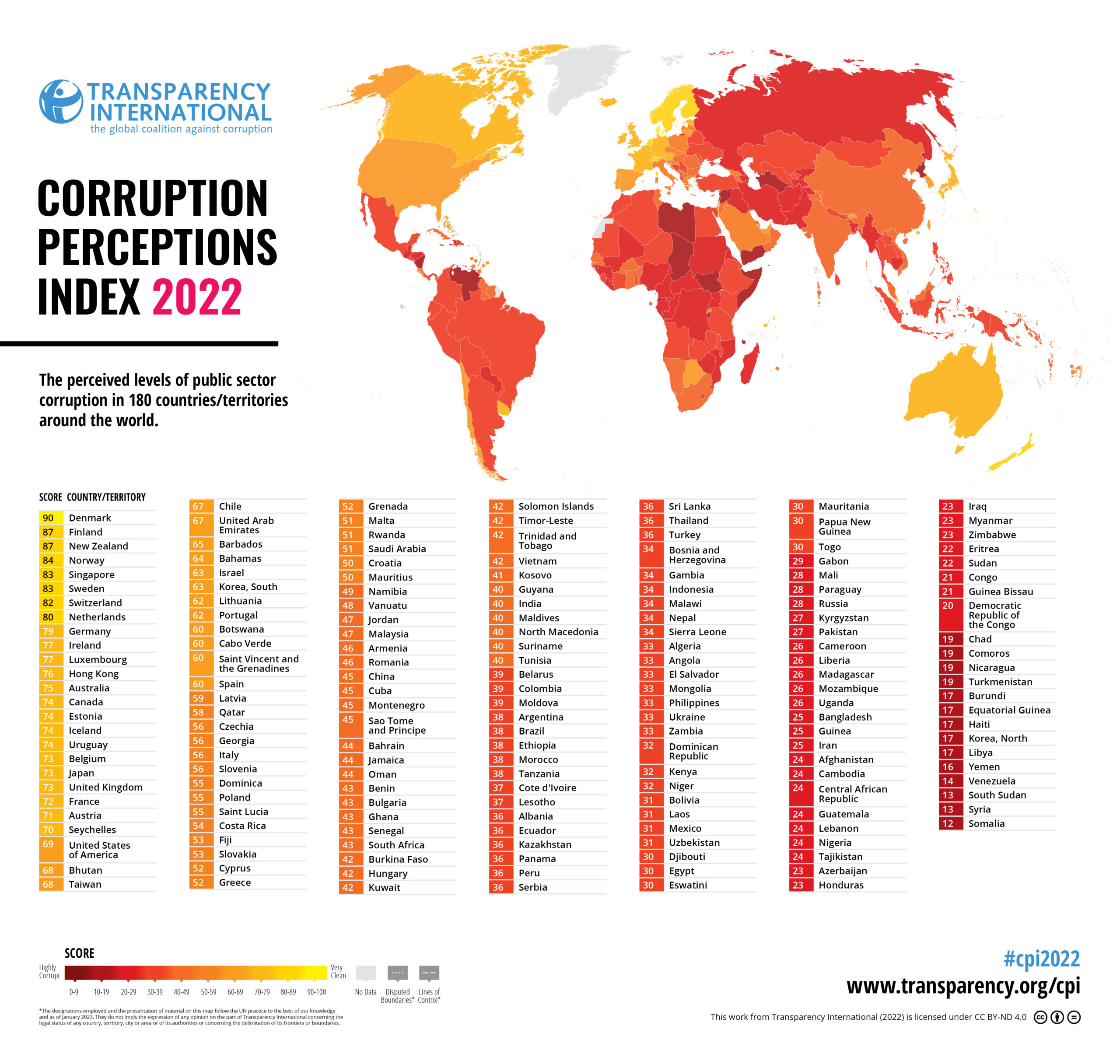
About the Corruption Perceptions Index (CPI)
CPI is a leading and widely used composite index that ranks countries and territories from around the globe based on how corrupt their public sector is perceived to be, from a scale of 0 (very corrupt) to 100 (very clean). It aggregates data from a number of different reputable sources that provide perceptions of business people and in-country experts of the level of corruption in the public sector. The 2022 CPI ranks 180 countries and territories, drawing on up to 13 surveys. In the case of Cambodia, eight sources were used – namely:
- World Economic Forum Executive Opinion Survey 2021
- Political and Economic Risk Consultancy Asian Intelligence 2022
- Global Insight Country Risk Ratings 2021
- Economist Intelligence Unit Country Risk Service 2022
- The Varieties of Democracy 2022
- World Justice Project Rule of Law Index Expert Survey 2022
- Bertelsmann Stiftung Transformation Index 2022
- World Bank Country Policy and Institutional Assessment 2021
Types of public sector corruption captured in the CPI encompass bribery, diversion of public funds, effective prosecution of corruption cases, adequate legal frameworks, access to information, and legal protections for whistleblowers, journalists and investigators.
The CPI does not measure activities such as tax fraud, money laundering, financial secrecy, illicit flows of dirty money, or other forms of private sector corruption.
For a full list of result and relevant data sources, visit: www.transparency.org and www.ticambodia.org/cpi2022
###
Transparency International is the civil society organisation leading the fight against corruption.
Media Contacts:
Pech Pisey, Executive Director of Transparency International Cambodia, (+855) 89 972 620, piseypech@ticambodia.org
Download Presentation on Cambodia’s Score
Download Presentation on Methodology
Download Technical Methodology
This post is also available in: Khmer
 English
English ភាសាខ្មែរ
ភាសាខ្មែរ